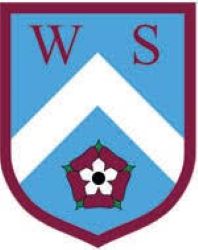Context for joining Behaviour Hubs
Wollaston School is a non-selective comprehensive 11-18 school in rural North Northamptonshire. It has a population of approximately 1400 students on roll. The catchment it serves has very few areas of deprivation.
The percentage of students in receipt of free school meals has been well below average for the last three years. The percentage of SEND students (K and E) were below average. In 2023, there were 148 students receiving SEND support and 21 students with an EHCP. 44 students were coded as SEND and in receipt of free school meals. 89% of the school population were white British.
Whilst the school serves a catchment where there are some pockets of deprivation, the school is actually in lowest 20% of schools in regard of deprivation measures.
Our challenge is to ensure that we raise expectations of the students in terms of both their behaviour, behaviour for learning and what they are capable of. The ambition for the school is to be an exceptional school by September 2027. In order to achieve that, in year one, we are prioritising behaviour for learning of our students as well as building a firm foundation of routines and expectations across many aspects of school life
Behaviour challenges and goals
We wanted to establish and implement a Behaviour for Learning Strategy that would do the following:
- Raise the expectation of all stakeholders, not least students and staff, around eradicating low level disruption to learning
- Safeguarding every minute of every lesson from low level disruption
- Be explicit with young people about what was expected of them in their learning and different points in lessons
- Provide a framework for colleagues to use, which would be consistent across the range of subjects and lessons
- Have clear key performance indicators for leaders to measure implementation and impact on learning.
There were several challenges that leaders faced:
- There have been some significant senior leadership changes to the school in the last two years
- We are a single secondary in our multi-academy trust, and we are not part of any national education organisation like PiXL and therefore have limited opportunities to collaborate with other schools on a regular basis
- Historically, behaviour has also been good at Wollaston School. However, since the return from lockdown, behaviour has been more challenging, and the perception of staff is that it is not yet consistently good
- There is a lack of clarity around routines and expectations.
Solutions to behaviour challenges
To overcome the challenges, we have done the following:
- Accessed high quality training via the Behaviour Hubs programme and disseminated this across the school, particularly to senior leaders and pastoral colleagues
- We have significantly focussed on the work being done at the Duston School and Ashmole Academy. Our work with these two schools has helped us to reconsider where we are, what we want to achieve and how we intend to do that over the course of the next three years
- Specifically in relation to behaviour for learning, the Behaviour Hubs programme has helped us make strong connections with schools who have focussed on behaviour for learning or who have conducted similar work to what we have identified at Wollaston School
- The relationships with these schools have helped us to shape our vision and refine our approach to implementation. The schools we have worked with include Challney High School for Boys and Challney High School for Girls, both part of the Chiltern Learning Trust
- The Behaviour Hubs programme has also helped to signpost the excellent research and action research in the field of behaviour for learning. Some examples include Running the Room by Tom Bennett, Behaviours for Learning Promoting Relationships in the Classroom by Routledge, When the Adults Change Everything Changes by Dix, Supporting Behaviour in the Classroom – O’Regan, EEF Foundation Toolkits etc.
Impact on behaviour
Quality assurance phase one of our approach to behaviour for learning has shown the following:
- Year 10 showed reduction in Action/Stage 3 logs and Warning/Stage 2 logs
- Year 10 overall disruption to learning logs decreased by 20% from the previous week with a total of only 40 logs overall
- Year 9 reduced Action/Stage 3 logs by 52%
- Year 9 increased their Warning/Stage 2 logs by 4 total logs
- Year 9 overall disruption logs decreased by 19%
- Year 8 increased Action/Stage 3 logs by 16%
- Year 8 reduced Warning/Stage 2 logs by 30%
- Year 8 overall disruption logs reduced by 14%
- Year 7 reduced Action/Stage 3 logs by 19%
- Year 7 reduced Warning/Stage 2 logs by 15%
- Year 7 reduced overall disruption logs by 16%
Wollaston School was inspected in May 2023. Ofsted said, “Leaders have implemented a clear behaviour policy. Most staff apply it consistently and pupils appreciate this.” They went on say, that “low-level disruption is usually dealt with swiftly and fairly.” The report also stated, “pupils participate well in lessons and behave appropriately around the school site”. Significantly, the opening line in the report said, “the school’s core values of ‘kindness, community, and ambition’ are seen throughout the school”. The school values underpin everything that happens at Wollaston School.
Next steps on your behaviour journey
Our next steps include the following for behaviour for learning:
- Embed the Learning Modes that there continues to be 100% compliance in every lesson, every day
- Build greater routines and expectation by creating greater consistency around the start of lessons through reviewing, refining and recasting SMART starts
- Use senior leaders at Duston School to externally quality assure the implementation and impact of our approach to improving behaviour for learning in term 1 of the 2024-2025 academic year.
In relation to building a culture which more robustly reflects our school values:
- Establish clear and consistent rules at Wollaston School
- Review and refine the proactive, reactive, and restorative approach to behaviour and bullying.

